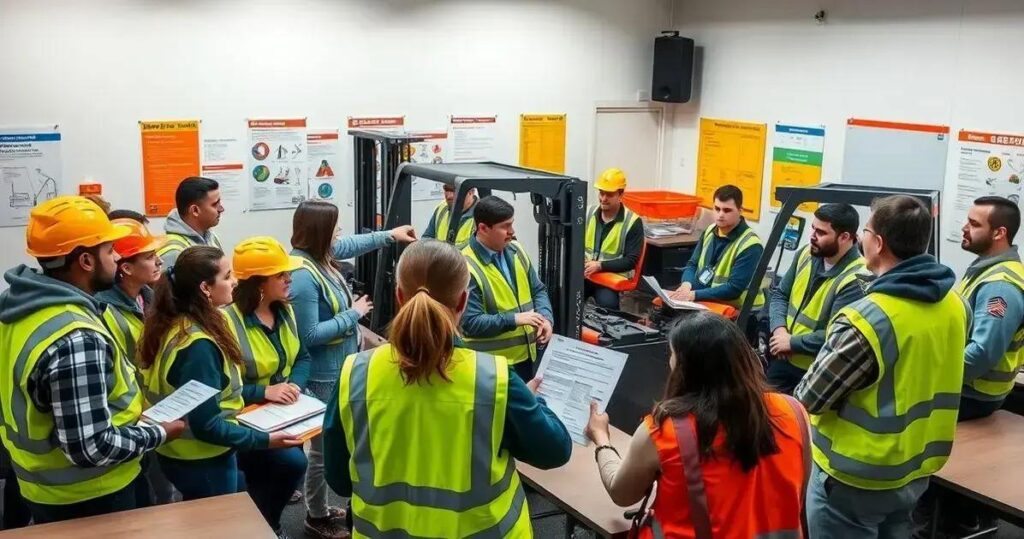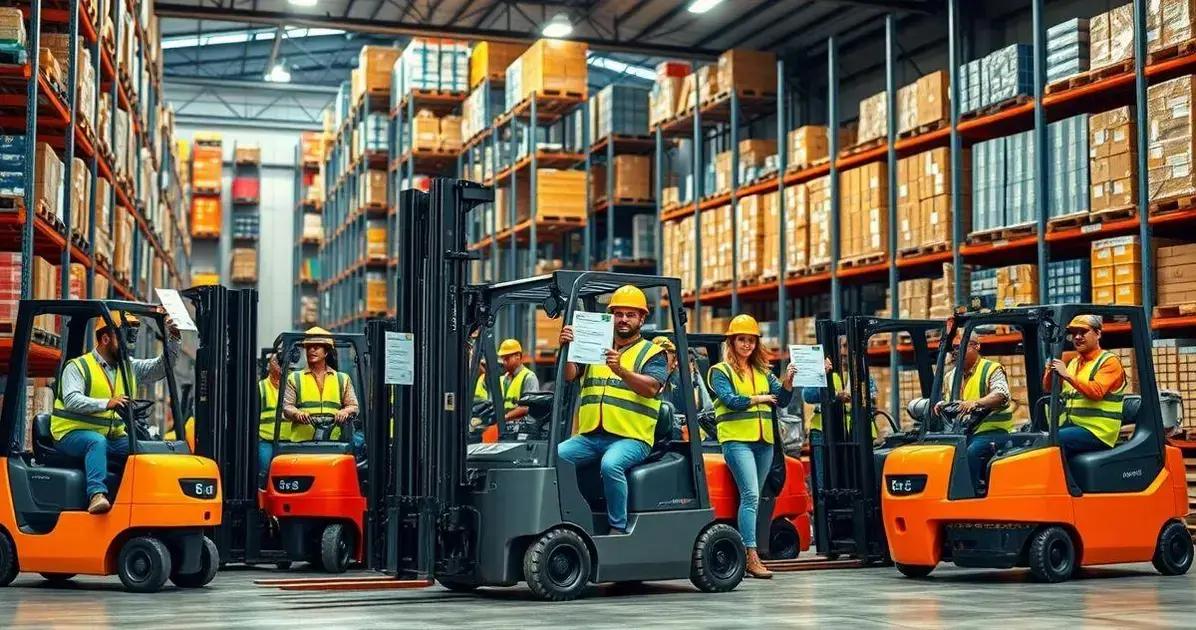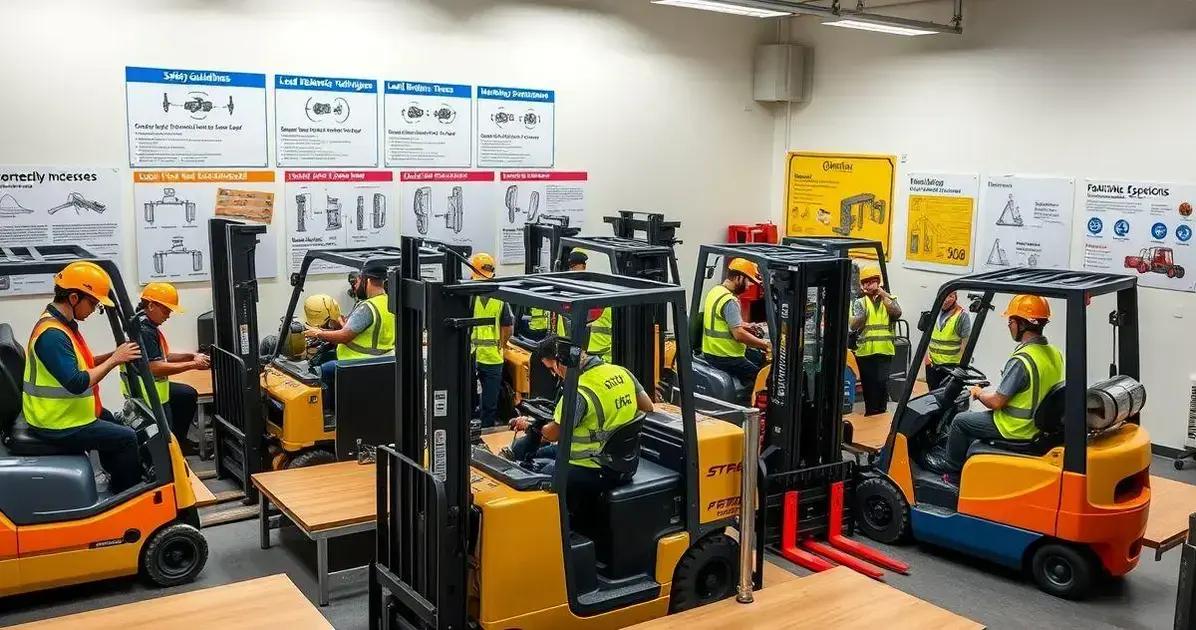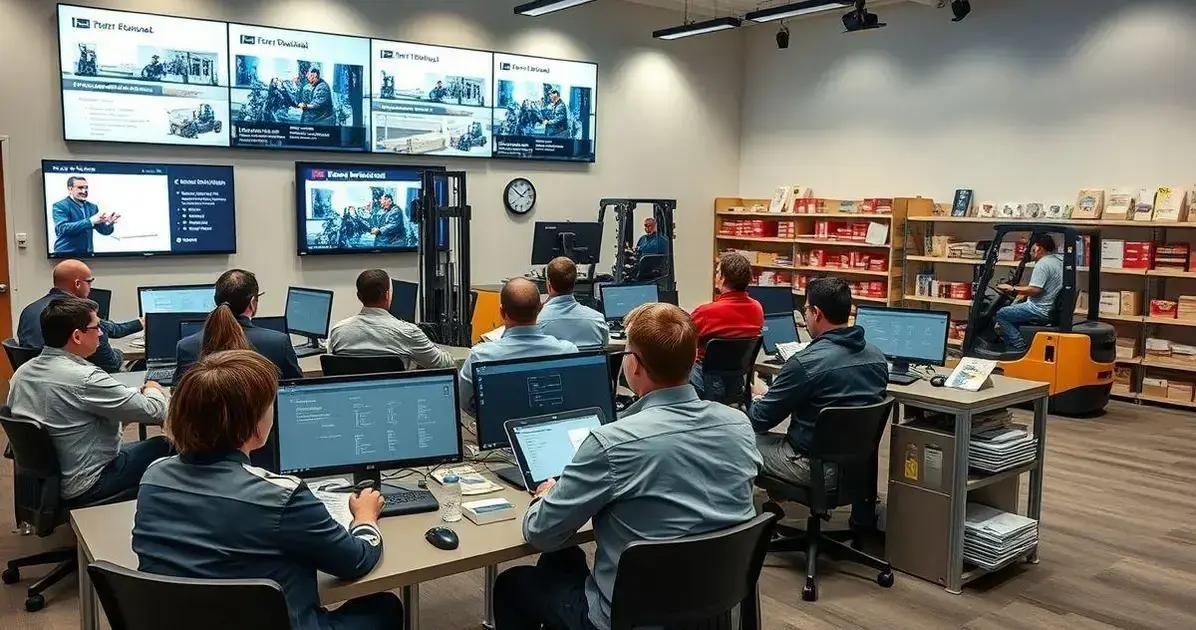Operator Course, Forklift Certification: Boost Your Career with New Skills

Operator course, forklift certification—these are terms that can significantly impact your career. Whether you’re just starting or looking to enhance your current skills, obtaining a forklift certification can unlock numerous job opportunities. This guide will walk you through everything from course requirements to benefits and safety improvements.
Understanding the Operator Course Requirements
When considering an operator course for forklift certification, it’s essential to understand the prerequisites and other key requirements. These typically include having a valid driver’s license and being of legal working age. Fluency in the language of instruction is often required since understanding the theory components is crucial.
Before enrolling, check the course duration and schedule flexibility. Courses can vary, from short, intensive programs to extended lessons that fit into a busy work schedule. Ensure the course format aligns with your learning preferences—some offer hands-on training, while others may include significant classroom components.
Understanding Prerequisites
Many courses mandate prior safety training or a pre-course evaluation to assess your current knowledge level. Passing a basic physical exam is usually required to ensure you can handle the physical demands of operating machinery safely.
It’s also important to verify the accreditation of the course provider. Accreditation guarantees the training meets industry standards and that the certificate will be recognized by employers. Select a program that offers comprehensive training, covering both the technical and regulatory aspects of forklift operation.
Additionally, consider financial costs and available funding options or employer sponsorships. Some employers might cover certification fees for employees, so inquire about these possibilities.
Course Components
Typical components of an operator course include instruction on equipment types, operation skills, maintenance procedures, and safety protocols. Each section is vital in preparing you for certification tests, which combine written exams with practical assessments.
Forklift certification courses not only aim to educate but also to instill confidence. They often incorporate simulation exercises that replicate real-life scenarios, allowing you to practice in a controlled environment. Successfully completing these sections ensures you are well-prepared for the challenges of operating a forklift safely and efficiently.
Benefits of Forklift Certification for Your Career

Obtaining a forklift certification can significantly enhance your career prospects. Certified individuals are often in high demand due to their demonstrated skills and commitment to safety standards. With certification, you can access a wider range of job opportunities, often with increased pay.
Employers prefer hiring certified operators as it reduces the risk of workplace accidents, resulting in lower insurance costs. Certification also indicates that you are well-versed in the latest industry practices, making you a valuable asset to any company.
Career Advancement
Certification opens doors to career advancement by validating your expertise. It can pave the way for supervisory roles or specialized positions, such as operating complex machinery. As you gain experience, you may also have opportunities to train new operators.
For those looking for long-term stability, industries such as construction, warehousing, and manufacturing prioritize certified operators. This not only secures your job but also offers career growth with companies invested in employee development.
Aside from higher wages, certified operators often enjoy improved job security. Employers recognize the importance of retaining skilled workers, especially ones who can ensure productivity while maintaining safety protocols. This stability is a critical component of professional satisfaction and financial security.
Steps to Enroll in a Forklift Certification Program
To start your journey towards forklift certification, you’ll first need to research and select a reputable training provider. Look for programs that offer comprehensive coursework and hands-on training. Ensure that they are accredited and have positive reviews from past participants.
Once you’ve identified suitable programs, verify the entry requirements. Most courses require you to have a valid driver’s license and be at least 18 years old. It’s important to ensure that you meet all prerequisites before applying.
Application Process
The next step is to complete an application form, which can often be done online or in person. Some programs may require an application fee, so be prepared for this expense. Submitting the form will usually prompt a registration confirmation and additional information about the course schedule.
After registering, you may need to complete pre-course assessments or safety training, which helps the instructors gauge your starting point and tailor the program to your needs. Keep an eye on your email or portal for any required pre-course work or instructions.
Finally, arrange for tuition payment or explore funding options. Some employers offer tuition assistance or reimbursement for certification programs. If financial assistance is needed, inquire about scholarships or payment plans through the training provider.
Once you’ve completed these steps, you’ll be enrolled in the program and ready to attend the classes. Stay committed and engaged throughout your training to ensure you gain the skills and knowledge necessary for certification.
Top Skills Learned in Forklift Training Courses

Forklift training courses are designed to equip participants with essential skills for safe and efficient forklift operation. One of the key skills learned is understanding how to operate different types of forklifts. This includes familiarity with controls, maneuvering techniques, and load balancing methods.
Another crucial skill involves load assessment and management. Operators learn how to evaluate the weight and stability of loads, ensuring safe transport. Proper load distribution prevents accidents and optimizes forklift performance.
Safety Protocols
Emphasis is placed on safety protocols, including recognizing potential hazards and implementing preventative measures. Trainees are taught how to conduct pre-operation checklists and troubleshoot potential mechanical issues.
Communication skills are also developed, as operators must effectively interact with team members. This ensures coordinated movements and enhances workplace safety. Using hand signals and radios is a common practice introduced in these courses.
Maintenance skills are imparted to help operators perform basic inspections and report issues. Understanding maintenance helps prevent downtime and extends machinery life.
Finally, trainees learn about regulatory compliance. This includes knowledge of legal responsibilities and best practices that align with industry standards. Staying informed about regulations helps operators maintain certification and ensures operational legality.
How Forklift Certification Improves Workplace Safety
Achieving forklift certification plays a crucial role in enhancing workplace safety. Certified operators are trained to follow stringent safety protocols, reducing the likelihood of accidents. This training ensures they are aware of potential hazards and know how to mitigate them effectively.
Operators are taught to perform pre-operation checks, which involve examining the forklift for any signs of damage or mechanical issues. Regular inspections help in identifying problems early, preventing accidents caused by equipment failure.
Safety Awareness
Certification programs emphasize safety awareness by teaching operators to navigate the workplace environment safely. This includes understanding traffic patterns, recognizing blind spots, and practicing safe load handling techniques.
Communication is prioritized to facilitate safe operations. Operators learn to use hand signals and other methods to communicate with coworkers, ensuring everyone is informed about forklift movements and operations.
Certified operators are also educated on how to handle emergency situations. This training includes response protocols for chemical spills or collisions, ensuring quick and effective actions that minimize risk to everyone involved.
The knowledge gained through certification ensures that operators can not only protect themselves but also maintain the safety of their colleagues and the business environment. With these skills, certified operators contribute to a safer, more productive workplace.
Renewing Your Forklift Certification: What You Need to Know

Maintaining an up-to-date forklift certification is crucial for ensuring workplace safety and compliance. Most certifications require renewal every three years, aligning with industry standards and regulations. Knowing when your certification expires allows you to plan accordingly for renewal.
The renewal process typically involves a refresher course that reviews core safety practices, operational protocols, and any updates in regulations. These courses also cover any new technology or machinery changes introduced since your last certification.
Preparing for Renewal
Before renewing, gather necessary documents, such as your current certification and any records of training sessions attended. These documents are often required to verify your eligibility for renewal.
Keep an eye out for renewal notices from your initial certification provider, which often offer details about renewal courses, schedules, and fees. Signing up for these courses early ensures you have plenty of time to complete the renewal before your current certification expires.
Employers may offer assistance, such as covering renewal fees or scheduling work around training sessions. Discuss options with them beforehand to ease any potential scheduling conflicts.
Renewing your certification not only keeps you compliant but also refreshes your knowledge and skills in forklift operations, reinforcing your commitment to safety and proficiency in the workplace.
Why Forklift Certification is a Smart Career Move
Pursuing an operator course and forklift certification not only boosts your career but also elevates workplace safety standards. With thorough training, individuals gain critical skills that are applicable across various industries, ensuring both personal and organizational benefits.
Every step of the process, from understanding course requirements to renewing your certification, contributes to your professional growth. The certification validates your expertise, making you a valuable asset to employers, and opens doors to new opportunities and advancements.
Whether you’re new to the field or looking to sharpen your skills, forklift certification is a strategic investment in your future. Stay proactive about maintaining your certification to ensure you remain compliant and ready to take advantage of all the opportunities this credential offers.
By committing to safety and continued learning, you set a solid foundation for success in a competitive job market. Embrace the chance to boost your skill set and contribute to a safer, more efficient workplace.